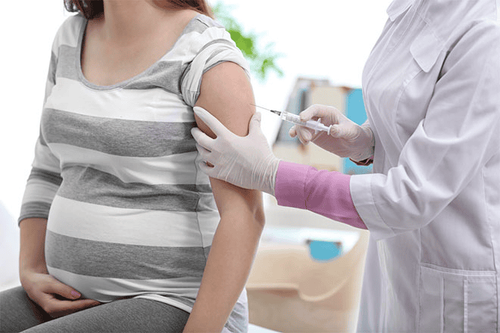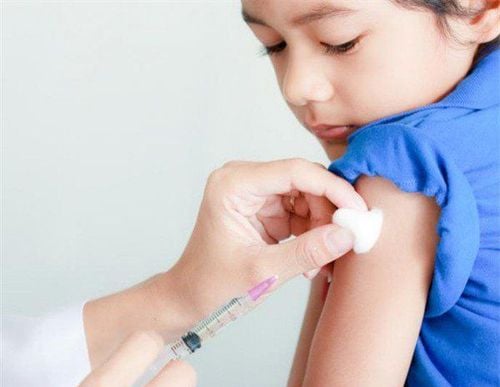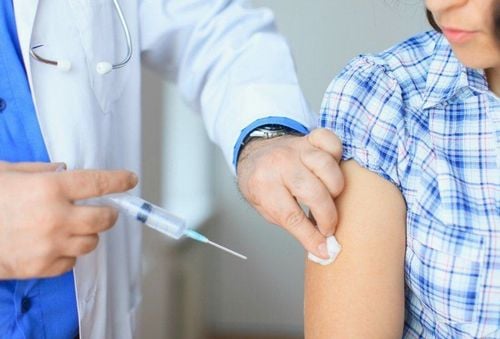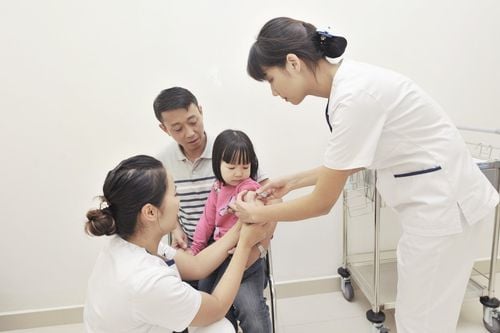This is an automatically translated article.
The vaccines in the immunization schedule for babies 3 to 4 months below are recommended by the Centers for Disease Control and Prevention (CDC). Based on the health status and medical history of each child, the doctor will advise on the type of vaccine and the right time to vaccinate the child.1. Diphtheria - pertussis - tetanus vaccine
Time of injection: when children are 2 months, 4 months old, 6 months old, 15-18 months old, 4-6 years old, 11-12 years old.Why should diphtheria and tetanus vaccine be given?
Protect children against diseases 03 dangerous diseases for children including diphtheria , tetanus and pertussis . Preventing a child from developing a thick coating on the back of his nose or throat caused by diphtheria that may make it difficult for him or her to breathe or swallow. Protect your child from muscle stiffness caused by tetanus. Helps prevent children from having a severe cough caused by pertussis. Due to the prevention of the above diseases, children do not have to miss school and you do not have to take time off work to take care of them.
2. Hib vaccine
Vaccination schedule: when children are 2 months old, 4 months old, 6 months old and 12-15 months oldWhy should Hib vaccine be given?
Hib vaccine protects children against Haemophilus influenza type B (Hib) bacteria which is the most common cause of pneumonia in infants and children under 2 years of age and causes acute bacterial meningitis in children under 5 years of age. . When suffering from any inflammatory disease, if not treated promptly, children can have long-term and severe complications of nerve, deafness, dementia... Due to the prevention of the above disease, children do not have to school and you don't have to take time off work to take care of the kids.
3. Polio vaccine
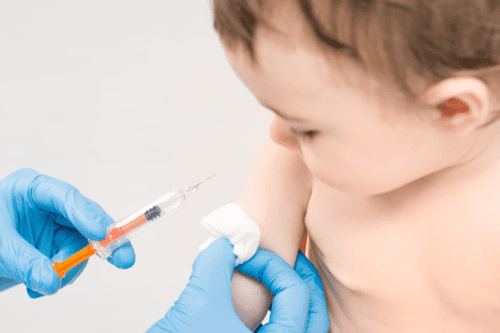
Tiêm vắc xin bại liệt khi trẻ 2 tháng tuổi, 4 tháng tuổi, 6-18 tháng tuổi và 4-6 tuổi.
Why should polio vaccine be given?
Polio is an acute infectious disease caused by the polio virus. When the polio virus enters the body and spreads to the lymph nodes, others enter the central nervous system, causing damage to the anterior horn cells of the spinal cord and the motor neurons of the cerebral cortex. Children with the disease can lead to death or leave irreversible paralysis and lifelong disability. Due to the prevention of the above disease, children do not have to miss school and you do not have to take time off work to take care of them.
4. Pneumococcal vaccine
Vaccination schedule: when children are 2 months old, 4 months old, 6 months old and 12-15 months oldWhy should pneumococcal vaccine be given?
Streptococcus pneumoniae bacteria that cause pneumococcal disease are spread through the air when an infected person coughs, sneezes, or speaks. When infected children have symptoms such as fever, chest pain, shortness of breath, and severe cough, stiff neck, headache, pain when looking at bright lights. Most pneumococcal infections are mild, but in some cases it can lead to death or cause long-term health effects, like brain damage or deafness. Due to the prevention of the above disease, children do not have to miss school and you do not have to take time off work to take care of them.
5. Rota vaccine
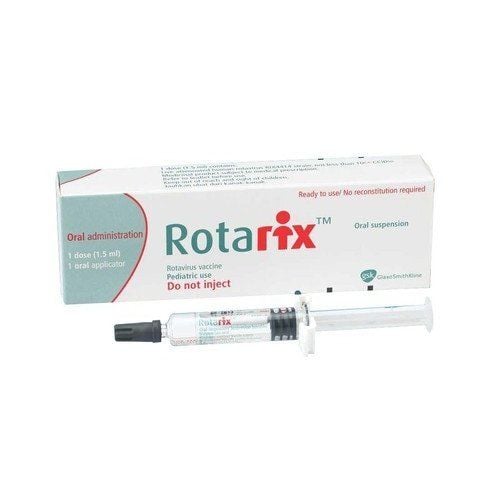
Cho trẻ uống Vắc xin Rotarix® (RV1) khi trẻ 2 tháng tuổi và 4 tháng tuổi
RotaTeq® (RV5) at 2 months of age, 1st dose of rotavirus, 2nd dose at 4 months of age, and 3rd dose at 6 months of age Rotarix® (RV1) at 2 months and 4 months age Why should you take Rota vaccine?
Rotavirus is one of the leading causes of severe diarrhea, hospitalization, and even death in young children. The route of acute diarrhea caused by rotavirus is mainly when children touch contaminated toys with their hands and put them in their mouths. Symptoms can vary from diarrhea to dehydrated diarrhea with vomiting, fever, and shock. Therefore, parents should consider vaccinating their children to prevent complications of acute diarrhea. Due to the prevention of the above disease, children do not have to miss school and you do not have to take time off work to take care of them. Vinmec International General Hospital uses a source of high-quality vaccines, of clear origin, suitable for the age to be vaccinated, ensuring safety from the check-in, storage to use. Before vaccination, all customers are screened before vaccination with specialist doctors to ensure the best health when vaccinated. 100% of vaccinated customers are monitored and re-evaluated before leaving. In particular, the post-vaccination monitoring room is fully equipped with emergency facilities; the team of doctors - nurses are trained in anaphylaxis emergency management to ensure timely and correct treatment when an incident occurs.
Please dial HOTLINE for more information or register for an appointment HERE. Download MyVinmec app to make appointments faster and to manage your bookings easily.
Reference source: Cdc.gov



